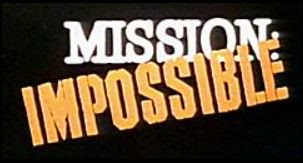HOW WILL the generations who came after the Baby Boomers be remembered? Every generation has a “signature”: a collection of ideas and aspirations that renders it instantly recognisable to the scholars and artists whose job it is to make sense of the past. Certainly, that is the case with the Baby Boom Generation. One has only to write a list of words and expressions: Beatnik, folk-singer, anti-war protester, New Leftist, civil-rights worker, feminist, acid rock, hippy, commune, Woodstock, New-Ager, environmentalist; and immediately, images, sounds, and a colourful cascade of defining historical moments conjure-up the generation born between 1946 and 1965 like a gaudy pantomime demon.
It is out of these vivid historical moments that the ideas and aspirations of Baby Boomers may be distilled. Like the pieces of a jigsaw puzzle they fit together to form a complex generational portrait. The face we see bears the imprint of idealism and hedonism; rebelliousness and expediency; creativity and venality. The Baby Boomers may have set out to do good, but they settled for doing well. They may have been brave, but they weren’t stupid. They longed to be free, but drew the line at being poor.
Mick Jagger (who, like just about all of the cultural icons who enthralled and inspired the Baby Boom generation, is not a Boomer) happily adopted the persona of a street-fighting man, but fought the taxman harder. “Money, it’s a hit”, declared Pink Floyd, “don’t give me that do-goody-good bullshit.” Bob Dylan warned his young followers that “Up on Housing Project Hill/It’s either fortune or fame/You must pick one or the other/Though neither of them are to be what they claim.”
There has always been something disconcertingly sly about the Boomers. Sly, and a just a little bit cynical. The Who famously tipped their hat to ‘The Revolution’, only to bring their fans crashing back down to earth with that immortal sign-off: “Meet the new boss/Same as the old boss.” It was as if the Boomers, like the Russians, were saying: “Trust – but verify.”
So, what about the Generations that followed the Boomers? What about Generations X, Y and Z? What distinguishes these unfortunate souls, historically, is that, unlike the Boomers, they were not born into an age of plenty and limitless horizons, but into a world of reduced circumstances and abandoned dreams. The Boomers looked at their parents and felt mostly pity. A worldwide economic depression, followed by a world war, had created a generation whose over-riding desire was for security. Work hard, keep your nose clean, don’t rock the boat, and, most of all, be wary of people peddling big ideas – because that way lies trouble! They got their security, bless ‘em, but only at the price of enjoying it in a cramped and unadventurous society. Poor bastards!
The end-of-the-alphabet generations looked at the Boomers and felt not pity, but a contemptuous, envy-driven rage. It was as if the luckiest generation in human history had invited them into the wondrous ice-cream emporium it had inherited from the Greatest Generation, only to tape their mouths shut at the door, and continue scoffing. They were sorry, they said, observing the resentment in the younger generations’ eyes, but there just wasn’t enough for everybody. When you’re older, the Boomers promised, ice-cream dribbling down their double-chins, you will understand.
In the meantime, however, Generations X,Y, and Z have created a culture negatively defined by the cynical idealism and hedonistic excesses of the Boomers. If the civil-rights workers and the feminists wanted equality; if the New Left of the 1960s preached participatory democracy; and if the hippies worshipped freedom; then the inheritors of these big Boomer ideas would impose them without debate. When they got their hands on power, Gen-X, Y and Z were fiercely determined to actually do the things that the Boomers only talked, and sang, and marched about.
When it came to politics, arts and culture, bombastic White men would have to step back for people of colour, women and the rainbow community. It was their turn now to strut and fret upon the stages of the world. The prophets and peacocks, whose singular political and artistic voices defined the 1960s and 70s, were creatively superseded by the mad-cap kaleidoscope of social media, and the incessant buzzing of innumerable Spotified bees. So many masters, so few masterpieces.
But what about the ice-cream? Who got the ice-cream? It is in relation to economic and social policy that the awful legacy of the Baby Boomers is most plainly in evidence. Because Generations X, Y and Z are not socialists – not even in their dreams. The neoliberals (who, like most of the Boomers’ cultural icons, were not Boomers themselves) may have seduced the Baby Boom Generation (Boomers are easily seduced!) but they convinced the generations that followed them. Ice-cream is for the best – not the rest. Work hard, keep your nose clean, don’t challenge the ideological powers-that-be, and you, too, will be invited to dine at the big emporium – and this time your mouth will not be taped shut.
This then will be the signature of the generations that followed the Boomers. Idealistic authoritarians. Obedient revolutionaries. Incorruptible puritans. Unflinching meritocrats. They will be remembered as the generations who, more than anything, wanted to have the Boomers’ ice-cream – and eat it too.
May God forgive us.
This essay was originally posted on The Daily Blog of Tuesday, 31 August 2021.















